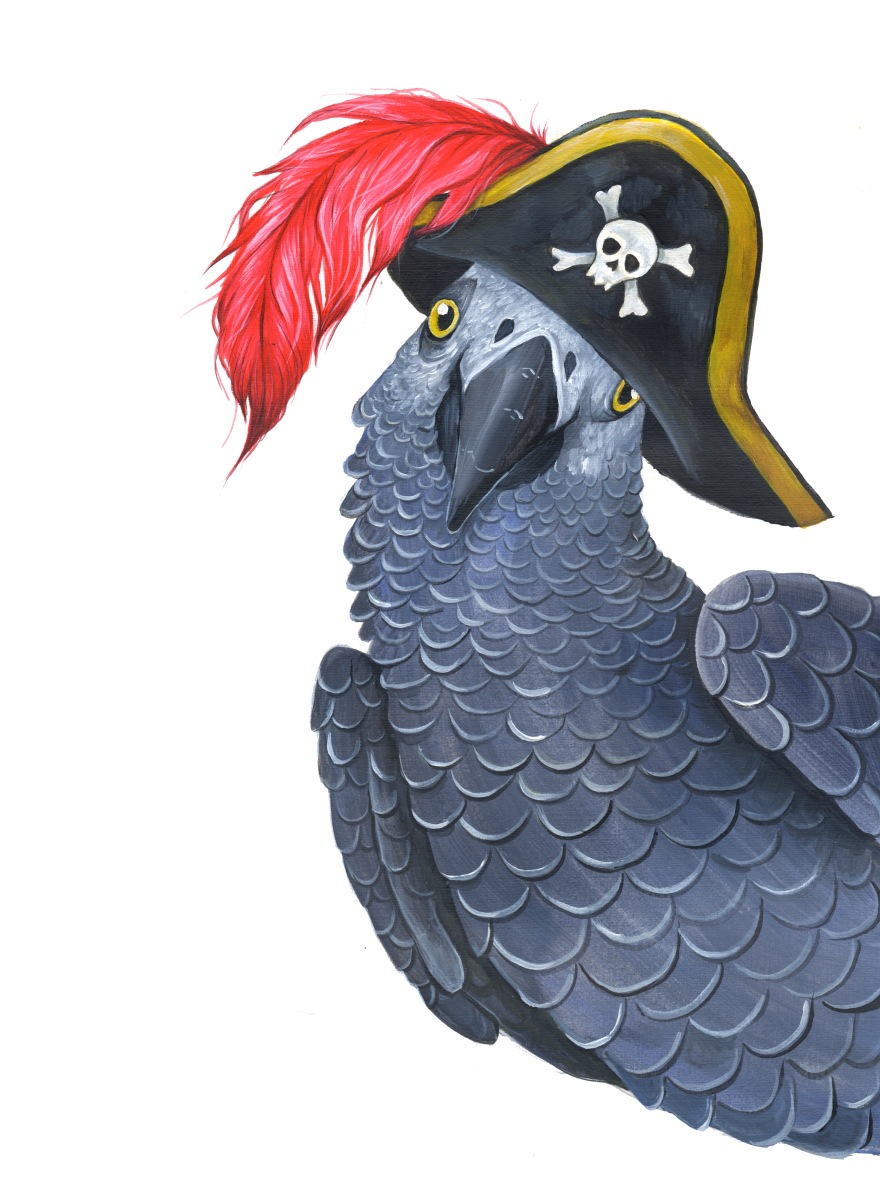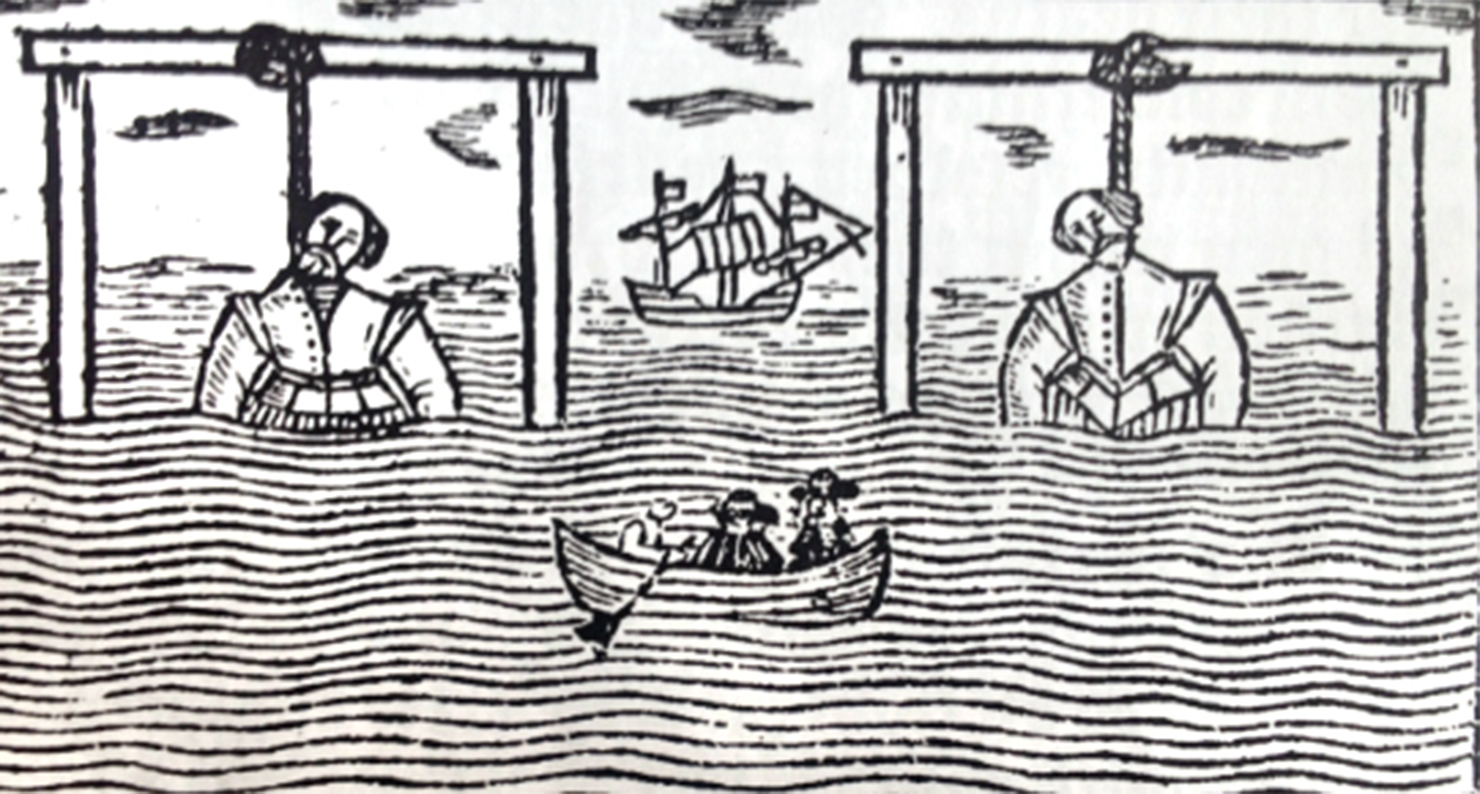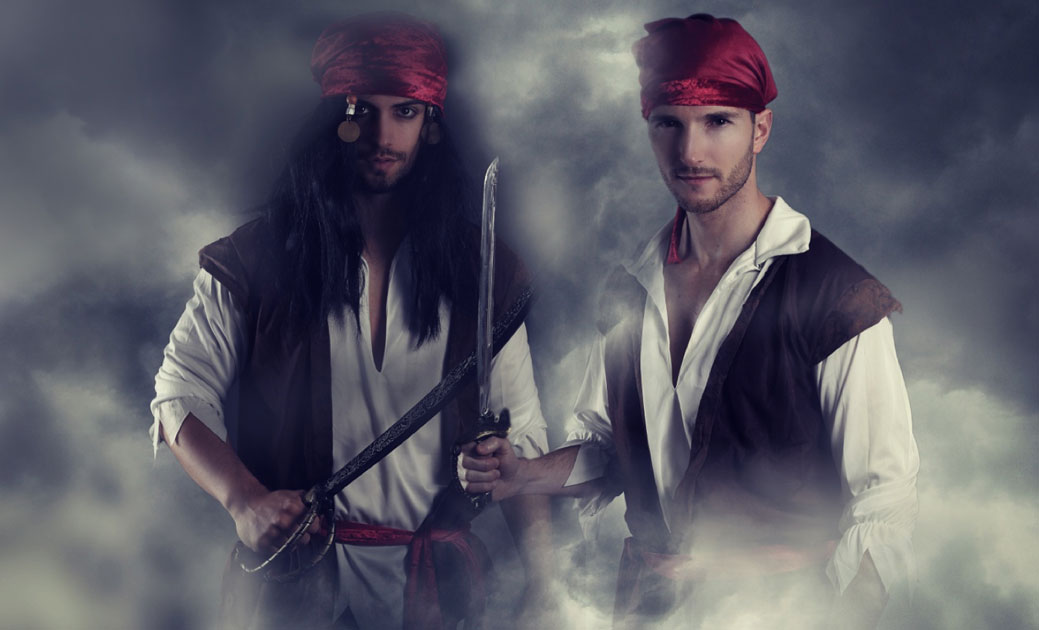I've not done much today except read - Insomnia is a Bitch, but when It kicks your ass as hard as its been kicking mine the last couple of days barring a few Chores around the house, I've not gotten much done at all today.
I know with the tiredness Headache I get when I lose this much sleep - I shouldn't really read, but I'm afraid the lure of the High Seas in the late 17th Century and Early 18th Century is always too much for me.
So, rather than not Blog anything today - the Sea Gods know I'm too tired and sore to be imaginative. I thought I'd post some interesting Facts about our favourite Larcenous Seafarers!
I would imagine that everyone who is a Pirate fan knows the English word “pirate” is derived from the Latin term “pirata” which means sailor or sea robber! But it is also from the Greek word “peirates” which literally means “one who attacks ships” . . . .
The spelling of “Pirate” wasn’t standardized until the eighteenth centuries and “pirrot”, “pyrate”, and “pyrat”, were commonly used until then.
Pirates actually preferred not to kill many people aboard the ships they captured, the logic behind this was simple - if the ship surrendered, they generally killed no one. They would board the enemy ship, steal all the goods they could carry, and leave the crew alive (presumably to tell the tale of their ordeal). If it became known that pirates took no prisoners, victims would be more likely to fight to the last breath, making claiming their prize more difficult.
In 1241, an English pirate named William Maurice was the first person known to have been hanged, drawn, and quartered - showing to the world how much the then-King Henry III viewed the crime of piracy.
The Mediterranean was once a playground for pirates. New discoveries about 16th-century pirates reveal what private sailors had to do to protect themselves. The Mediterranean waters along Israel's coast were once so infested with pirates that merchant ships felt the need to arm themselves for protection.
Even though the Atlantic and Caribbean pirates were heavily romanticized, Mediterranean Pirates equaled or outnumbered them at any given point in history.
Pirate communities operated as limited democracies, instituting a system of checks and balances similar to the one used by many present-day Democratic Countries around the World.
The Pirate Council (the term used to referred to the members of the Pirate crew) was responsible for removing officers from their positions, and then choosing new candidates to fill those positions.
They even had a health care system - each Pirate Ship made provisions for certain injuries and their monetary worth. For example, the loss of a right arm was worth six hundred pieces of eight, while a left arm was worth five hundred pieces of eight. The funds for these types of compensations were taken from a common pool of money, which remained as a portion of the booty captured on their expeditions.
Pirates are known for eye patches, walking the plank, and collecting booty, but there are more pirate traditions than you might be aware of, like the fact that same-sex relationships were common among the Pirates of the Caribbean. “Matelotage” was a gay marriage of sorts practiced by male pirates from the 17th century. Some of the most successful pirates had relationships with other men as a means of companionship and protection. Having a mate was both a personal and professional arrangement for a pirate - and the word 'Mate' itself is probably a holdover from the institution of Matelotage.
And with that revelation, I'm off to try and sleep - Nite Shipmates!










No comments:
Post a Comment